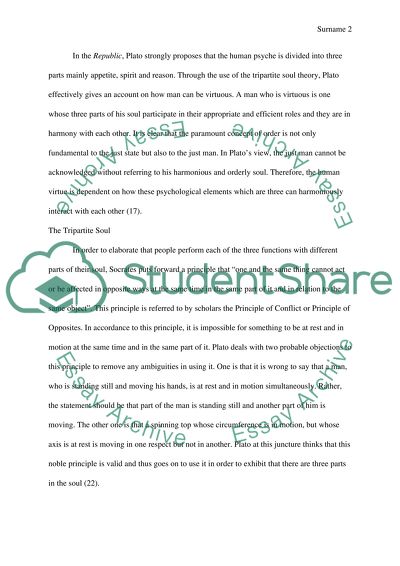Examine some aspect of Plato's theory of the tripartite soul from Essay. Retrieved from https://studentshare.org/philosophy/1469515-examine-some-aspect-of-plato-s-theory-of-the
Examine Some Aspect of Plato'S Theory of the Tripartite Soul from Essay. https://studentshare.org/philosophy/1469515-examine-some-aspect-of-plato-s-theory-of-the.


